Chris Wade - Interview
by Malcolm Carter
published: 23 / 12 / 2017
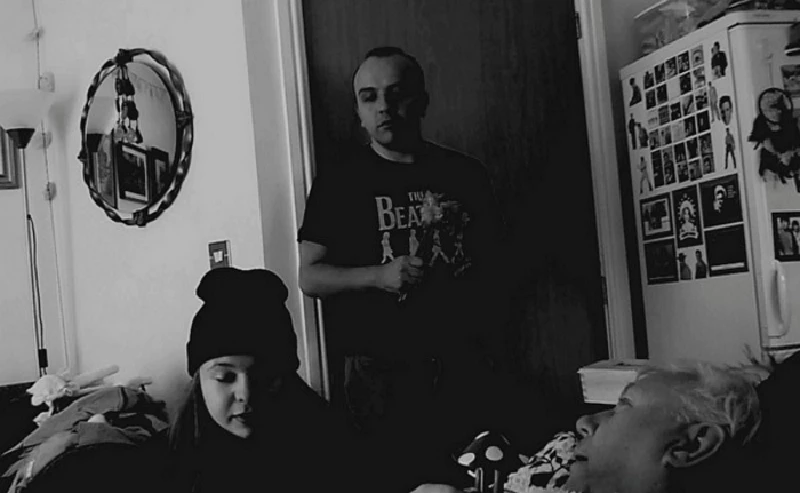
intro
Malcolm Carter speaks to author and Dodson and Fogg frontman Chris Wade about his second feature film, ‘Seven Days In Never’.
Boxing Day. Usually a day spent recuperating in front of the TV or visiting relatives that we haven’t seen for all of 12 months. Back in the day it maybe meant you’d battle your way through the start of the sales because this particular Boxing Day was in 1967 and people still frequented shops way back then. And anyway there was never anything worth watching on the TV then, was there? But Boxing Day 1967 was different. In the evening, The Beatles were going to unleash their new film, ‘Magical Mystery Tour’ on the BBC1 in glorious monochrome. Now time plays some strange tricks, whenever I think of ‘Magical Mystery Tour’ I think of it in colour, maybe the second showing on BBC 2 in early January 1968 is the one that is really stuck in my mind, but then the question arises as to if we actually had a TV set in the house then capable of receiving colour transmissions. But one thing is for sure, all these years later it’s obvious that the film clearly didn’t deserve all the negative reviews it received at the time. Even for those teenagers who weren’t Beatles fanatics it made for an exciting end to an extraordinary year. Now exactly 50 years later there’s a good chance that more people will be sitting in front of a computer monitor than a TV screen come Boxing Day evening. Probably using their credit card in a virtual shop more out of boredom than anything else. So here’s a tip, not only for those who can remember the excitement of the chance to catch the Fabs new film in their own living room and who want to take another mystery ride, but for anyone who is looking for something to watch that is out of the ordinary, and without a doubt, like nothing else you will watch either on TV or even possibly the Internet over the Christmas period. Yep, Chris Wade, the multi-instrumentalist who writes, plays, produces and probably even presses those wonderful Dodson & Fogg albums that he has been releasing regularly over the past few years has released ‘Seven Days In Never’, his second film this year and the follow-up to ‘The Apple Picker’. It’s available to watch (or even download) for free at https://vimeo.com/album/4866179/video/243612199 and the film (in two parts) is an absolute must for those who took the time to watch ‘The Apple Picker’, in some ways it’s a continuation of that film, it certainly shares the same surreal features as Wade’s first foray into filmmaking, and like its predecessor, after the first showing the viewer is left with the feeling of, What was all that about? to a certain degree but you also feel compelled to watch it again. Nigel Planer again lends his voice to the film and many of the performers from ‘The Apple Picker’ make a return, like that film there’s the unique Wade hybrid of humour and darkness, some short sections are, as before, quite chilling while other segments will resonate with viewers, especially the father/son dialogue. According to the press release, the film takes the viewer inside a young man’s life and mind for seven days, taking in his dreams, fears and nightmares. Wade describes the film as ‘a road trip for the mind, a psychedelic odyssey’ and that’s a more than fair description of one of the most thought-provoking, unsettling yet ultimately rewarding short films that we’ve come across since, well ‘The Apple Picker’ actually. Chris Wade is not only one of our most prolific songwriters; he’s also one of the best, an innovator in fact and an inspiration to many, his music has always had that ability to take the listener on a journey but his films bring those journeys to life. In spite of a full schedule and while no doubt working on another Dodson & Fogg album, Chris kindly took time out to give us his thoughts on ‘Seven Days In Never’. PB: Hi Chris, good to have the opportunity to ask a few questions about Seven Days In Never; what inspired you to make another film? CW: Hello dear boy... I guess I just enjoyed doing 'The Apple Picker' so much I got the bug. When I make these films, if I can really call them that, I just take my camera around with me. Depending on where I am going, and especially if there will be people around who might want to take part, I see what happens, and I just kind of come up with things while I'm there, improvisational things. When I finished 'The Apple Picker,' told myself I wouldn't do another one for a while, or maybe write a script next time. I found the edit so hard on my PC, and got kind of obsessed with it; it knackered me out. And with it being quite a dark thing, it was odd being up editing it in the night. Quite eerie. So I didn't think I'd try another one so quickly. But then the ideas just started to flow again and I got really interested in just capturing things and then tying it all together with a very loose story. PB: Your music is instantly accessible and the books you have authored are some of the best in their field, yet both your forays into filmmaking are surreal and deep. Do you find making a film gives you more freedom to express yourself than you can via your music or writing? CW: Well, it's kind of different really. Doing music is my number one hobby and it always will be, because I always have so much fun doing it, and people really seem to like it, so in a way it encourages me more to keep going. With the writing, if it's a comedy audiobook it's a good laugh and a chance to get some ideas out that maybe I couldn't get out anywhere else; and writing about film and music is a nice hobby, too, just writing about my passions. But with these two films, it's been off to the side somewhere. I have such a laugh making them but I also get real satisfaction from capturing locations, imagery and a feel, doing the editing and piecing it together. They are kind of about atmosphere and humour really. I love the surreal. I like to do surreal drawings and I suppose these two films have been like moving paintings, more that than proper films to be honest. I don't really know why they come out this way, but it feels natural to me. Maybe I need my head testing. PB: Your previous film, ‘The Apple Picker’ was an official selection for The Sydney World Film Festival; it is still early days but has there been similar interest in ‘Seven Days In Never’? CW: Yeah, I think it's a bit early yet. I think it's more enjoyable to watch, if that's the right word, ha ha, than the first one. I will just see what kind of reaction it gets. As they are free and just put up there online, I don't really push them too much... I just like the fact some people chance upon them and watch them. It's been a another dream to make films of some kind, so the fact I can even do it on this level is nice. PB: The film is currently viewable on Vimeo. Are there any plans for it to be released on any other platform? CW: Not for now, because with film you need a rating and a proper release strategy if you are looking to make a profit at all. And these are just for fun, so I think I'll keep it simple. But on Vimeo people can stream them or even download if they feel like it. PB: We asked if you had any training in filmmaking when ‘The Apple Picker’ was released and you explained that watching and writing/reading about films gave you the inspiration to try it yourself. So, a successful musician, singer/songwriter, an acclaimed author and now a filmmaker, please tell us mere mortals that you can’t put up a bookshelf or do other mundane tasks successfully! CW: I don't think I could put up a book shelf! Ha ha. Actually, me and my dad put a shed together which sustains through wind, but I'm crap at DIY and anything along those lines. I tend to get all sweaty and uncomfortable doing anything like that. Anything based in reality makes me want to jump through a window. PB: Like your previous film, the viewer can interpret ‘Seven Days In Never’ in many ways, but what is the film about for you? CW: To me, basically it's about identity and having a place in life. It's about a guy who has heard that his dad is ill and plans to go see him one last time, but before then we get to spend a week in his head and in his life, but which it is, is not really specified. It's saying that it doesn't really matter what is real and what isn't. There are a few themes in it, too. He believes he has this awful relationship with his dad, that his father is some kind of monster, but when you look closer it's him that's the problem. His dad tries. There are things about regret in there, dreaming, not knowing who you are. It also goes into his longing for a family, that's why he sees the woman and the girl everywhere, and then that ties together with the Madonna and child imagery in the churches. It's kind of multi-layered, but for me, it's about going inside someone's head, having a few journeys through different avenues and alleys, then coming out again. The weird creature they find is like something dark within the corner of your mind, the loss of an innocence. There are little bits here and there that pop up too, then tie together later on... like 'The Watcher,' the grandchild who seems to not really exist, and the guy who is found dead in the canal with a scotch egg in his mouth. It's all so mad when I think about it now, I don't know how we managed to film it without laughing our tits off. PB: ‘Seven Days In Never’ is more thought provoking and deeper than your previous film but in some ways feels like a companion piece to ‘The Apple Picker'. Are there ideas in the film where the seed was sown while making ‘The Apple Picker’? CW: I see it as very much a companion film. To me, the main guy might even be the old man from 'The Apple Picker' but younger. I see it all as linked. They're like films for the mind set in the mind. But I enjoyed making the new one more because I felt like I knew what I was doing on some level; I had more fun filming it and the edit was easier too. PB: You picked a couple of more exotic locations for filming this time, didn’t you? CW: Yeah, I took my camera on holiday, firstly to Malaga in Spain, and then Palma City in Majorca. I think the beautiful locations added to dream like quality. I was really happy with some of the stuff I captured there. Plus I had good jollies too... I also took it along to Edinburgh, Wales, Whitby... I got little bits and pieces in everywhere. My favourite location is at the start of the film, that weird building that looks like a prison with the roundabout at the bottom. That was in Wales, such a weird place... PB: You film in black and white and the whole film is presented like it’s taken from an old print. Do you feel that type of presentation is more suited to your vision than if the film was shot in colour? CW: In colour, to be honest, it looked kind of cruddy. It looked a little boring to me. As soon as I turned it black and white it made it more dreamy and surreal, like going into another world, like anything was possible. With it presented in this way you feel you cannot question anything that happens. PB: Where the film is set in a house, were some of the props there already? It all looks so normal and natural yet there are obvious nods to people you admire; the Eraserhead picture, the Beatles mug, the Marc Bolan picture (although I know you maybe don’t see it, your music reminds many of some of Bolan’s work) to name just a few. In fact, it was a bonus looking at these props and wondering if they were put there intentionally. CW: It was more natural actually. All those things are at my dad's. Those bits were filmed at his house and it just happens that everything he has out looks good and kind of matches up... and he has great taste too. On the T Rex note, more and more people are hearing Bolan in my music, too, and I've become a fan again recently, so I probably would agree with you more now about the similarities, ha ha. PB: Even though the film could be described as surreal there are sections that are totally relatable; similar father/son scenes have been lived through by many and the scenes are totally believable and real. Did you have to do many takes? CW: Me and my dad talk on the phone everyday, which is like my dinner hour from working through the week, and we always do improv skits with each other and have these running jokes, pretending there's an edge between us and talking bollocks really, ha ha. So when I went round one time, I had the idea of just sitting the camera there and us doing our usual thing. And it actually worked, it tied in with what was going on in the film. We had to do a few takes because we were laughing so much, and I could not actually disguise my own smirks in the final edit. PB: There are also a few sections that are a little disturbing, almost nightmarish; other times you have captured the innocence of childhood perfectly. Considering some of the actors are young and presumably are new to acting, how difficult was it to portray to them your vision? CW: I just kind of told them what to do really. My daughter is in there, and because I film her anyway for home movies, she just went with it naturally. And all my nieces and nephews were excited to be in it, so they just kind of did what I said and enjoyed it. I had to do a bit of editing, but they were all really great. It was such a laugh to do. Even the really creepy bits were all done in good humnour; they just became creepier and more scary in the edit. PB: For some still unfathomable reason, some of your music still conjures up visions of lakes, rivers and water in general, there’s also the same feeling in some sections of the film, do you have an association or fascination with the sea or lakes? CW: Maybe I do. I love the sea and water, but mostly, I love the countryside. But there's a purity to water that... oh god, I'm entering an utterly pompous, pretentious mode here. PB: The dialogue in ‘Seven Days In Never’ is sparse, yet effective. At times, more is understood from the visuals than words. Did you deliberately keep conversations to a minimum? CW: Yeah, because none of us are actors, I didn't want it to sound corny, so I relied on the visuals, apart from me and dad but that's because we do that stuff all the time. But I think silent films had it right, because the original aim of film was to stun with visuals alone. I think 100 and odd years on, most modern films are like what Hitchcock called them... "pictures of people talking." Sometimes I think there is too much emphasis on quotable dialogue, posing for the sake of it, 100 plot twists, special effects, etc. Sometimes it's nice just to look at something and enjoy it. Hitchcock also said a film was just bits pieced together, and looking at it like that really simplifies things. I'm not saying my film is better or anything, because most people would prefer to watch a superhero film than an hour long, black and white mostly silent surreal film with no stars in it, but it just matches my own personal taste, that's all. I think that's what it's all about really, pleasing yourself and seeing if anyone else gets it as well. Same with music, too, I think. But I had Nigel Planer break it up with little voice over bits that come from the mind of the main character, but also, don't in a way, They are purposely disjointed from the visuals and what's going on. PB: What do you hope the viewer takes away from the film? CW: Well, it'd be nice for those who can stomach these kinds of films to laugh and maybe have a think. I would just like them to enjoy it, take away their own meaning and thoughts of it. I would also like to think it might encourage some people to get a cheap camera, get family and friends together and just have fun making a little film. Not everything has to be made for money or mass acclaim, just have fun and mess around. I think we are pushed too much as adults into being proper grown ups, going to work, being a member of society, keeping up with the Joneses, going to the pub on a Friday night, being serious and grown up. When you are a kid you are encouraged to play, draw, paint, play music, escape into another world, do silly things and be liberated, but as soon as you are big enough, they want to slap that out of you and put you to sleep. But why? Why take it all so seriously? We're only here once, so just do what you want to do... to a certain extent. I don't mean run around town with a ferret down your trousers... well, if you want to do that, do it I guess. Just make sure the ferret consents. PB: As 2017 is almost over, what plans does Chris Wade have for 2018 regarding music, books and films? Or, given your rate of work over the last few years, maybe we should just ask about plans for January?! CW: Ha ha. Well, I have finished a new Dodson and Fogg album ready for a January release. I have a few books started that I plan to get through in the first few months of the year, and I am working on a script, an actual script with a story this time. It will be different from the others and I might have to make it in a new way, more structured and tight, more professional, but whatever I do with it, I am really excited about the whole thing. PB: Thank you.
Band Links:-
https://www.facebook.com/pages/Dodson-And-Fogg/282552805161916https://twitter.com/dodsonandfogg
http://en.wikipedia.org/wiki/Dodson_and_Fogg
http://wisdomtwinsbooks.weebly.com
https://en-gb.facebook.com/theapplepickerfilm/
https://vimeo.com/203832930
Play in YouTube:-
Picture Gallery:-
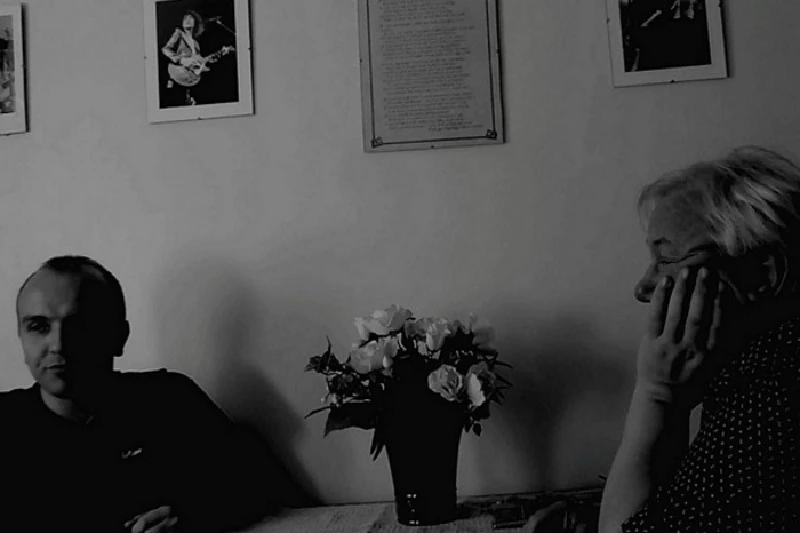
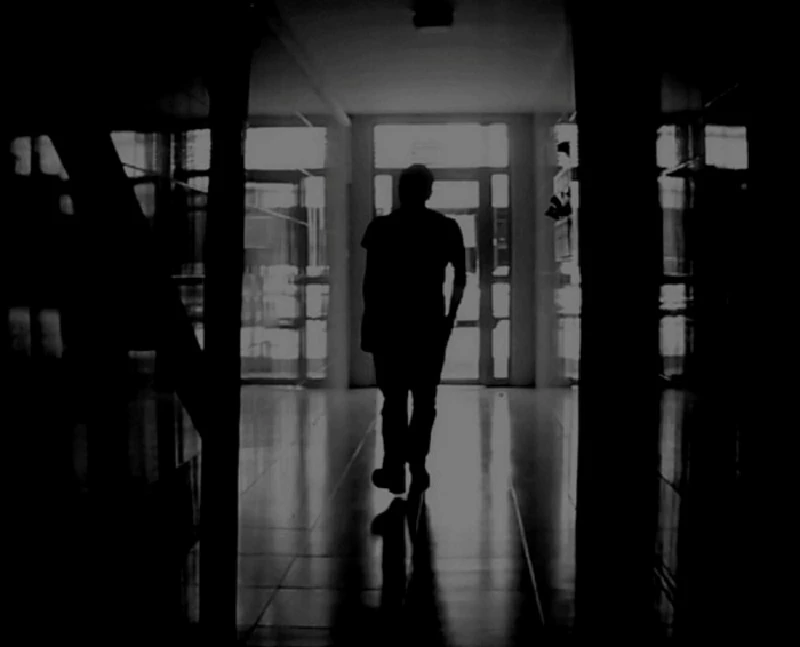
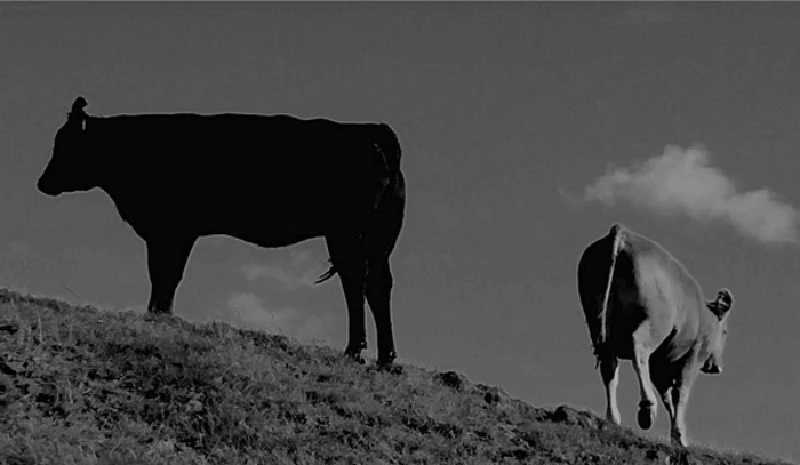
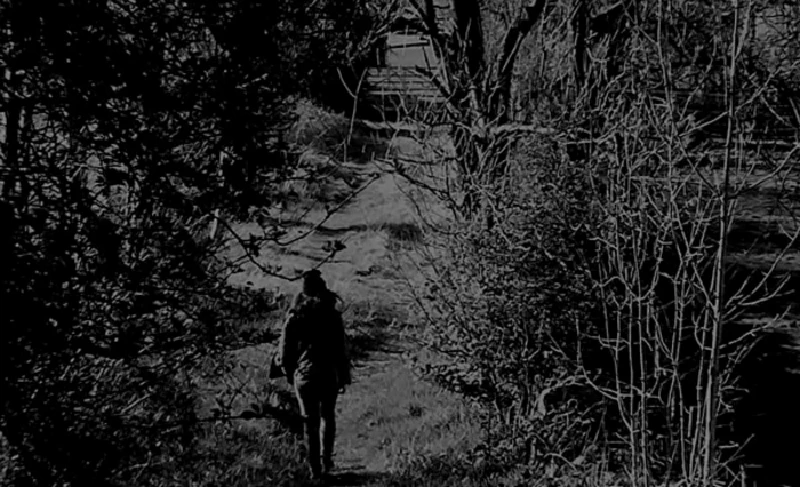
interviews |
|
Interview (2025) |
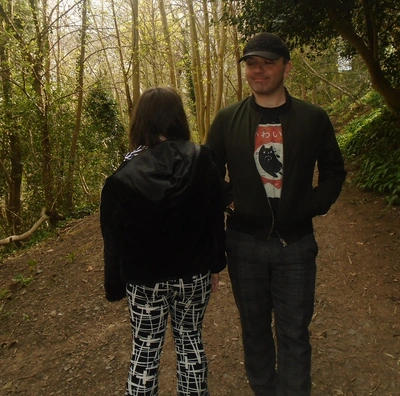
|
| Dodson and Fogg frontman Chris Wade has just released a memoir,, ]Adventures in Music Books and Film'. He talks to Malcolm Carter about it and his many projects, including, as well as recording albums, making films and writing books about film legends. |
| Interview (2018) |
| Interview (2017) |
most viewed articles
current edition
Spear Of Destiny - InterviewRobert Forster - Interview
Fiona Hutchings - Interview
When Rivers Meet - Waterfront, Norwich, 29/5/2025
Carl Ewens - David Bowie 1964 to 1982 On Track: Every Album, Every Song
Brian Wilson - Ten Songs That Made Me Love...
Chris Wade - Interview
Pistol Daisys - Waterfront, Norwich, 29/5/2025
Credits - ARC, Liverpool, 17/5.2025
Nils Petter Molvaer - El Molino, Barcelona, 24/4/2025
previous editions
Heavenly - P.U.N.K. Girl EPBarrie Barlow - Interview
Boomtown Rats - Ten Songs That Made Me Love....
Dwina Gibb - Interview
Oasis - Oasis, Earl's Court, London, 1995
Sound - Interview with Bi Marshall Part 1
Manic Street Preachers - (Gig of a Lifetime) Millennium Stadium, Cardiff, December 1999
Beautiful South - Ten Songs That Made Me Love...
Trudie Myerscough-Harris - Interview
Serge Gainsbourg - Ten Songs That Made Me Love...
most viewed reviews
current edition
Peter Doolan - I Am a Tree Rooted to the Spot and a Snake Moves Around Me,in a CircleGarbage - Let All That We Imagine Be The Light
Vinny Peculiar - Things Too Long Left Unsaid
Little Simz - Lotus
John McKay - Sixes and #Sevens
Suzanne Vega - Flying With Angels
HAIM - I Quit
Morcheeba - Escape The Chaos
Vultures - Liz Kershaw Session 16.06.88
Billy Nomates - Metalhorse
related articles |
|
Dodson and Fogg: Interview (2014 |
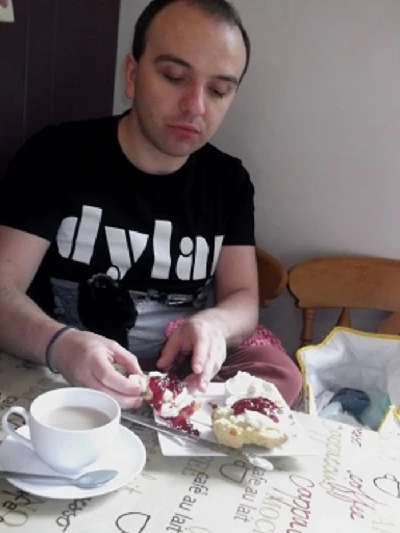
|
| Malcom Carter talks to singer-songriter and author Chris Wade about his 60's-influenced band Dodson and Fogg's sixth album and new concept record, 'In a Strange Slumber', which features a guest appearance from 'The Young Ones' actor, Nigel Planer |
| Dodson and Fogg: Interview (2014) |
Pennyblackmusic Regular Contributors
Adrian Janes
Amanda J. Window
Andrew Twambley
Anthony Dhanendran
Benjamin Howarth
Cila Warncke
Daniel Cressey
Darren Aston
Dastardly
Dave Goodwin
Denzil Watson
Dominic B. Simpson
Eoghan Lyng
Fiona Hutchings
Harry Sherriff
Helen Tipping
Jamie Rowland
John Clarkson
Julie Cruickshank
Kimberly Bright
Lisa Torem
Maarten Schiethart